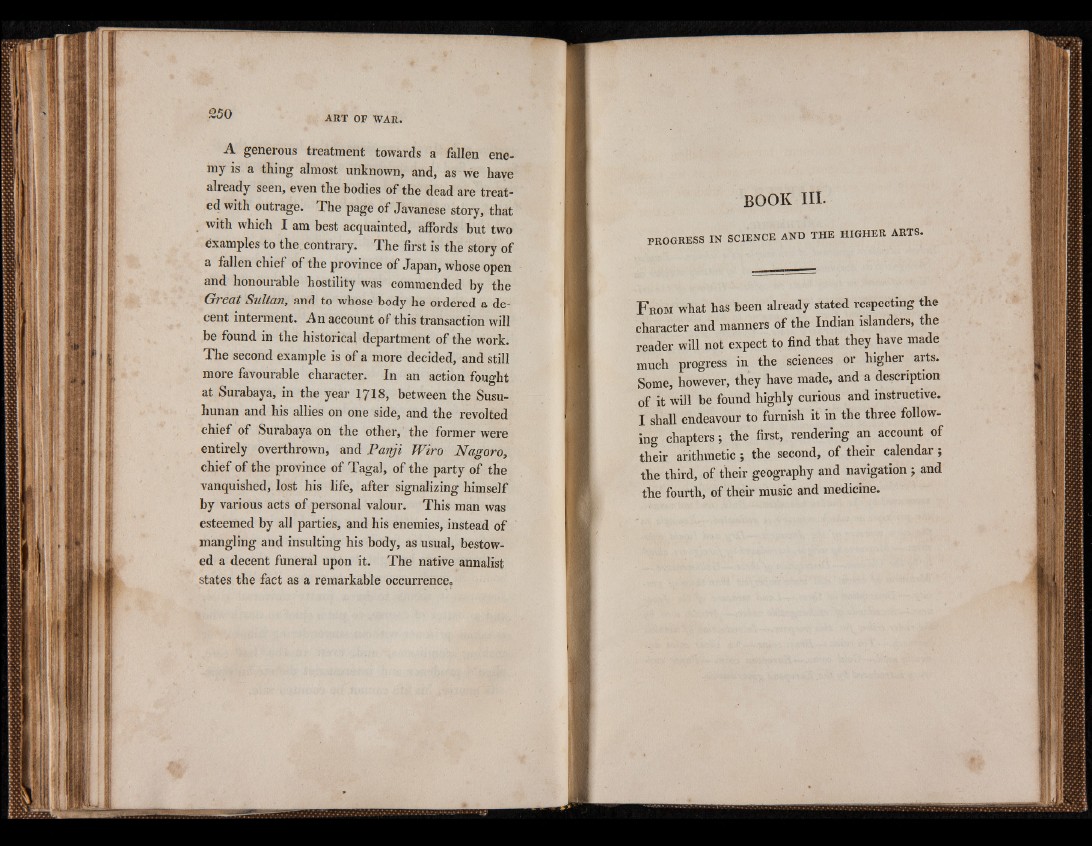
A generous treatment towards a fallen enemy
is a thing almost unknown, and, as we have
already seen, even the bodies of the dead are treated
with outrage. The page of Javanese story, that
with which I am best acquainted, affords but two
examples to the contrary. The first is the story of
a fallen chief of the province of Japan, whose open
and honourable hostility was commended by the
Great Sultan, and to whose body he ordered a decent
interment. An account of this transaction will
be found in the historical department of the work.
The second example is of a more decided, and still
more favourable character. In an action fought
at Surabaya, in the year 1718, between the Susu-
hunan and his allies on one side, and the revolted
chief of Surabaya on the other, the former were
entirely overthrown, and Panji Wiro Nagoro,
chief of the province of Tagal, of the party of the
vanquished, lost his life, after signalizing himself
by various acts of personal valour. This man was
esteemed by all parties, and his enemies, instead of
mangling and insulting his body, as usual, bestowed
a decent funeral upon it. The native annalist
states the fact as a remarkable occurrence,
bo o k h i .
progress in scien ce a n d th e h ig h e r ar t s .
F r o m what has been already stated respecting the
character and manners of the Indian islanders, the
reader will not expect to find that they have made
much progress in the sciences or higher arts.
Some, however, they have made, and a description
of it will be found highly curious and instructive.
I shall endeavour to furnish it in the three following
chapters; the first, rendering an account of
their arithmetic; the second, of their calendar;
the third, of their geography and navigation ; and
the fourth, of their music and medicine.